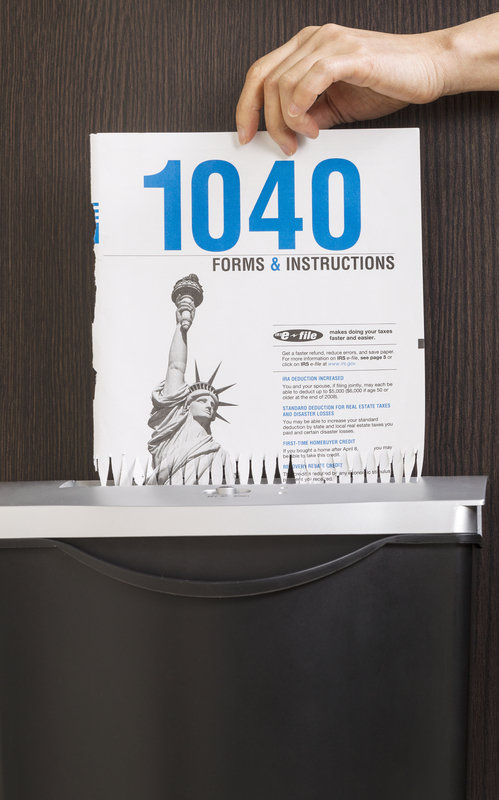Thinking of Dumping Old Tax Records?
How long should I hold on to them?

Tired of having all those old tax records taking up drawer or closet space and collecting dust. Want to dump as much as you can? People often ask how long records must be kept and the amount of time IRS has to audit a return after it is filed.
How long to keep the records depends on the circumstances! In most cases, the federal statute of limitations can be used to help you determine how long to keep records. With certain exceptions, the statute for assessing additional tax is 3 years from the return due date or the date the return was filed, whichever is later.
However, the statute of limitations for many states is one year longer than the federal limitation. The reason for this is that the IRS provides state taxing authorities with federal audit results. The extra time on the state statute gives states adequate time to assess tax based on any federal tax adjustments.
In addition to lengthened state statutes clouding the recordkeeping issue, the federal 3-year rule has a number of exceptions:
- The assessment period is extended to 6 years instead of 3 years if a taxpayer omits from gross income an amount that is more than 25 percent of the income reported on a tax return.
- The IRS can assess additional tax with no time limit if a taxpayer: (a) doesn’t file a return; (b) files a false or fraudulent return in order to evade tax; or (c) deliberately tries to evade tax in any other manner.
- The IRS gets an unlimited time to assess additional tax when a taxpayer files an unsigned return.
These records include:
- Stock acquisition data. If you own stock in a corporation, keep the purchase records for at least 4 years after the year you sell the stock. This data will be needed in order to prove the amount of profit (or loss) you had on the sale.
- Stock and mutual fund statements where you reinvest dividends. Many taxpayers use the dividends they receive from a stock or mutual fund to buy more shares of the same stock or fund. The reinvested amounts add to basis in the property and reduce gain when it is finally sold. Keep statements at least 4 years after final sale.
- Tangible property purchase and improvement records. Keep records of home, investment, rental property, or business property acquisitions AND related capital improvements for at least 4 years after the underlying property is sold.
- Verifying Income. Lenders require copies of past tax returns on loan applications.
- Validate Identity. Taxpayers who use tax-filing software products for the first time may need to provide their adjusted gross incomes from prior years’ tax returns to verify their identities.
- Online Using Get Transcript. Use Get Transcript Online on IRS.gov to view, print or download a copy for any of the transcript types. Users must authenticate their identities using the Secure Access process. Taxpayers who are unable to register or who prefer not to use Get Transcript Online may use Get Transcript by Mail to order a tax return or account transcript.
- By phone. The number is 800-908-9946.
- By mail. Taxpayers can complete and send either Form 4506-T or Form 4506T-EZ to the IRS to receive a transcript by mail.
If you have questions about which records you should retain and which ones you can dispose of, please give this office a call.